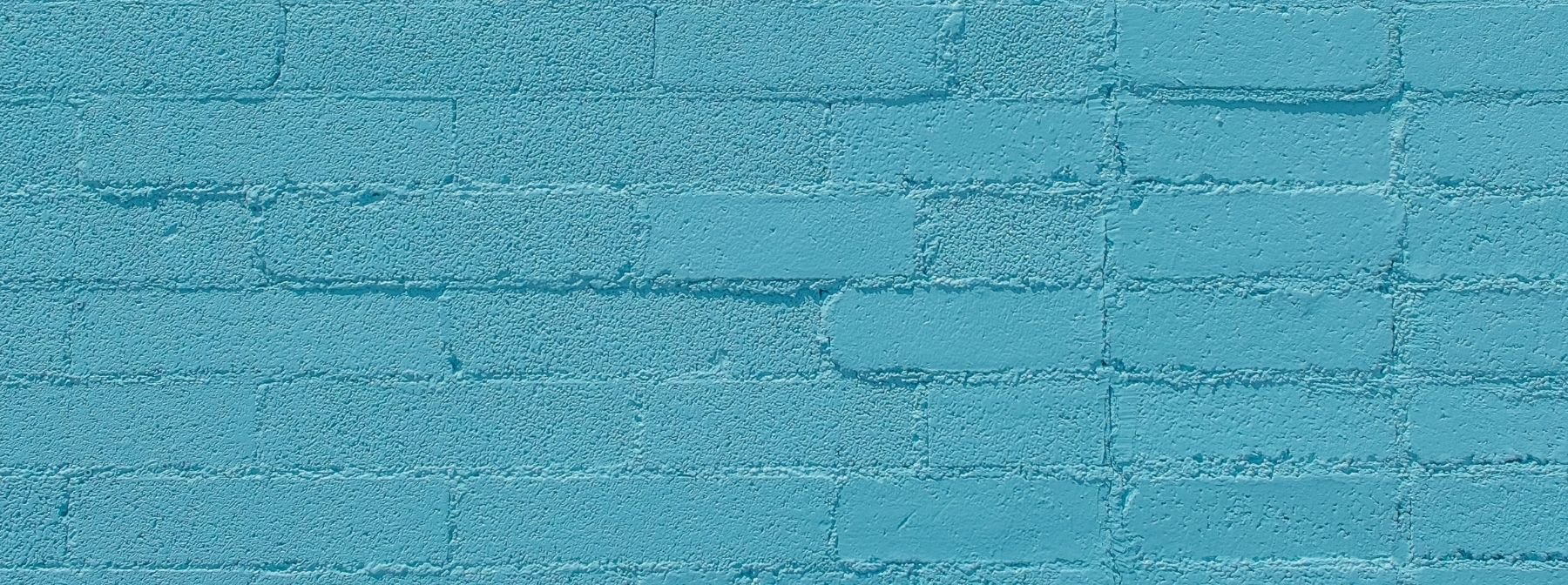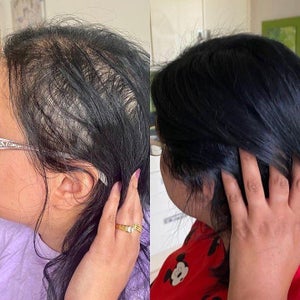
What is alopecia and can stress cause alopecia? We talk with Kayleigh Dowling about hair loss and her journey with Alopecia.
What is Alopecia? Hair loss and Alopecia may be confusing to understand, but the medical term for hair loss is Alopecia and it can affect just your scalp or your entire body, it can be permanent or temporary. What causes Alopecia? The NHS explains that it can be caused by illness, stress, cancer treatment, weight loss and iron deficiency. Alopecia Areata results in unpredictable, patchy hair loss and can be distressing to experience, and we want to thank Kayleigh Dowling for coming forward and sharing her story.
My Alopecia story talks through the heartache of a young teen and the journey to becoming a positive, young woman.

1. Hello Kayleigh, if you could please tell us about yourself?
Kayleigh, 33 - One of my biggest interests is travel, I rarely stay in one place for very long! I started travelling when I turned 18, living in Australia, New Zealand and Canada along the way. I have been incredibly fortunate to visit so many beautiful places and meet so many people from all over the world.

2. Why are you interested in sharing your journey with Alopecia?
I was inspired to share my alopecia story since I have seen so many others doing so on very public platforms like social media, I never felt brave enough to show myself the way they do. I hope to be able to gain confidence from sharing my experience as the more I share the more I learn how many people are affected by this awful condition.
For a long time I felt like I was the only one in the world feeling a certain way, counting the hairs left in the comb after brushing my hair, not wanting to wash my hair for fear of losing more, having to learn different hairstyles to hide the bald patches and all the other things that come along with it. I want others to know they are not alone, like I thought I was, and there are other people feeling the same feelings and fears as you.
3. When did your alopecia story start?
My alopecia story started when I was around 14 years old (2002), I was curling my hair in the mirror and I felt a soft patch on the back of my head, I took a second mirror out to look at the back of my head and saw a bald patch around 5cms in diameter.
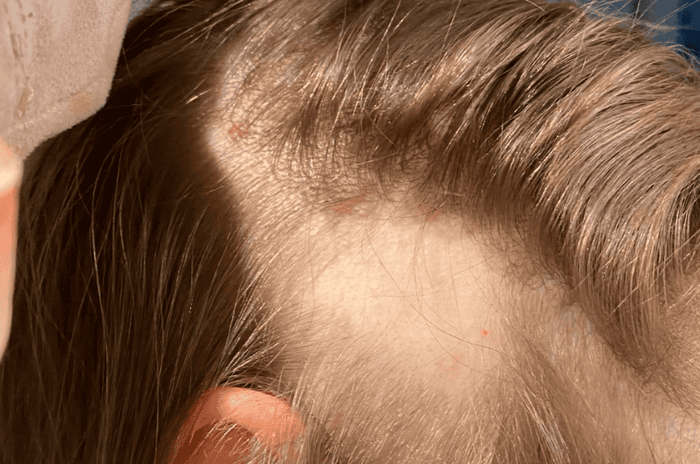
I immediately panicked, ran to my mum and was convinced I had cancer - that was the only association I had for hair loss - I had no idea at the time it was in fact the treatment of cancer that caused the hair loss. My mum knew exactly what it was as her mother (my grandmother) had suffered with it for most of her adult life.
4. What causes Alopecia and what was your experience like?
I felt deeply ashamed of my alopecia, terrified someone would see the bald patches and judge me in some way. I would do my best to hide the patches with the hair I had left and became completely obsessed with it. I would count the individual hairs that came out in my comb every time I brushed my hair, if I lost more hairs than the previous day I would just sit and cry for hours at a time, so scared it would never come back.
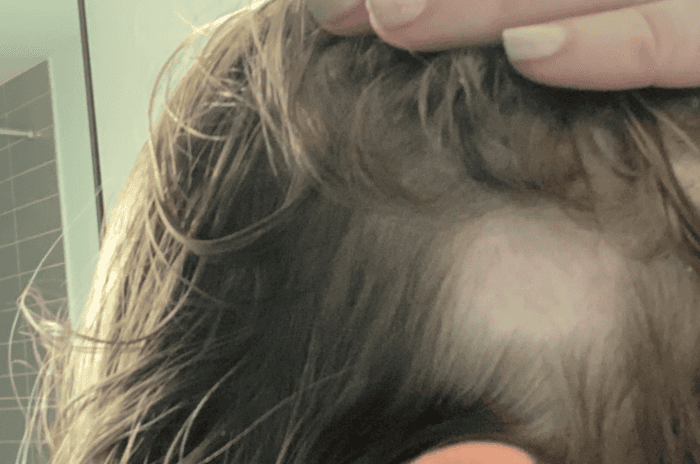
My mum took me to the doctor, but they had very little information to give me, there is no known treatment or cure so there was little they could do. They advised me it was stress related and that I should do anything possible to minimise stress as well as boost my immune system with herbal supplements like echinacea.
Can stress cause Alopecia? Yes, the problem with alopecia is that the more you stress the more hair you lose, the more you stress... it’s a vicious cycle. Only my immediate family knew about my condition, I hid it from everyone else, even my best friends at school, I was lucky I had enough hair left to hide the patches.
Google wasn't really a thing when I had my first experience with alopecia so I wasn't able to do much of my own research, I could only go on the advice given by my doctor and my mum, based on her own mother’s experience.
5. What happened in the following months?
Over the following months, I lost more and more hair until the entire crown of my hair was completely bald - I also lost some of my eyelashes and parts of my eyebrows too. To add insult to injury I never lost any of the unwanted body hairs, like armpit or leg hair - I only lost the hairs I wanted to keep on my body. Asides from supplementing with echinacea, I minimised the products I would use on my hair, no heat styling, no colouring, washing it less often etc.
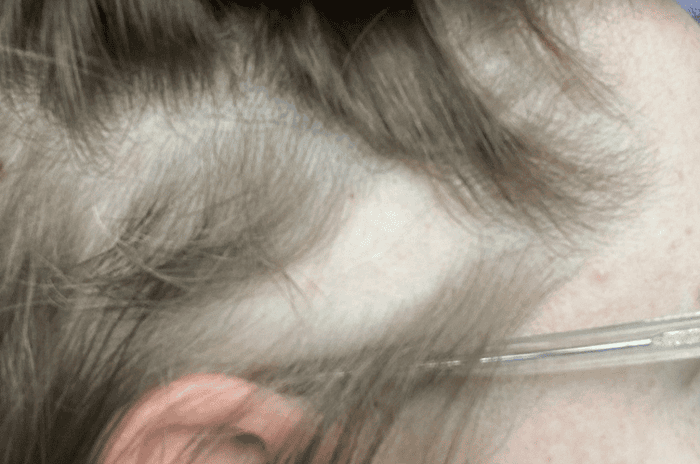
6. When did you start to notice your alopecia hair regrowth?
After a few months there was little to no regrowth, so my mum suggested an alternative therapy to try - hypnotherapy. I went for two sessions, both focused on stress relief by subconsciously releasing any past trauma, pain or tension - I was going through some family difficulty at the time so I was holding onto a lot of pain. Within a week or two after the hypnotherapy I started to feel the little spiky baby hairs coming through. I was absolutely thrilled to see the evidence of regrowth, even if it did result in an unwanted mullet hairstyle for a few months.
After 6 months or so it was barely noticeable, I was able to wear my hair down again for the first time in two years, it was an amazing feeling but I always live with the fear that it can happen again someday. There is no rhyme or reason to it sometimes, just one day I'll be brushing my hair after a shower and see a little bald patch that wasn't there the day before. The thing that had the biggest impact on my regrowth was definitely the therapy, letting go of hurt and stress I didn't know I had buried deep inside. I also now take it as a sign to slow down and take better care of myself - as soon as I notice a little patch beginning, I will eat better, get more rest, take more time for myself.
7. If you could give yourself advice back then, what would you say?
I wish I would have had access to the things we do today when I first experienced alopecia, there are so many inspiring people of social media who share their stories - if I had seen this when I was 14 I wouldn't have been so ashamed, felt so alone and have hidden myself away for years.
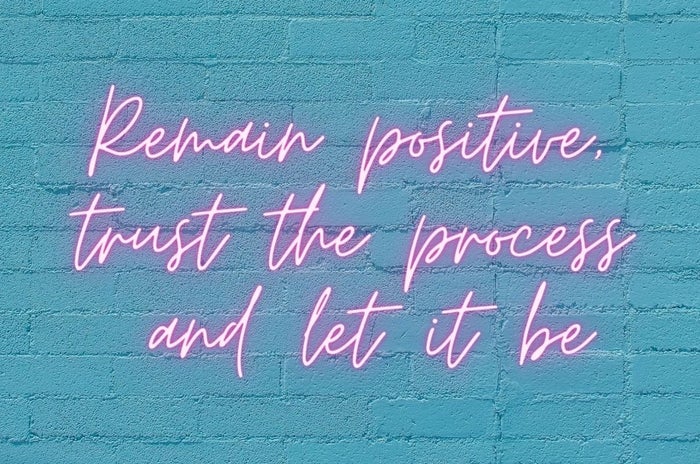
The biggest lesson I've learned from having alopecia is to listen to my body, slow down and take better care of my physical and mental health. I am a big believer in mindset too - I used to cry and stress for weeks when a new patch showed up, I now know from experience that so far it has always grown back, I just have to remain positive, trust the process and let it be.
How to support someone with Alopecia | Grow Gorgeous
It's important to show empathy to your friend/family member. The psychological impact of hair loss can be really distressing and you may want to offer advice quickly, but it’s best to listen to your family member and ask them how they’re doing. If they are struggling, recommend seeking support groups. There are support groups around the country where you can meet and socialise with people with Alopecia.
Click here to find your nearest USA Alopecia support group.

